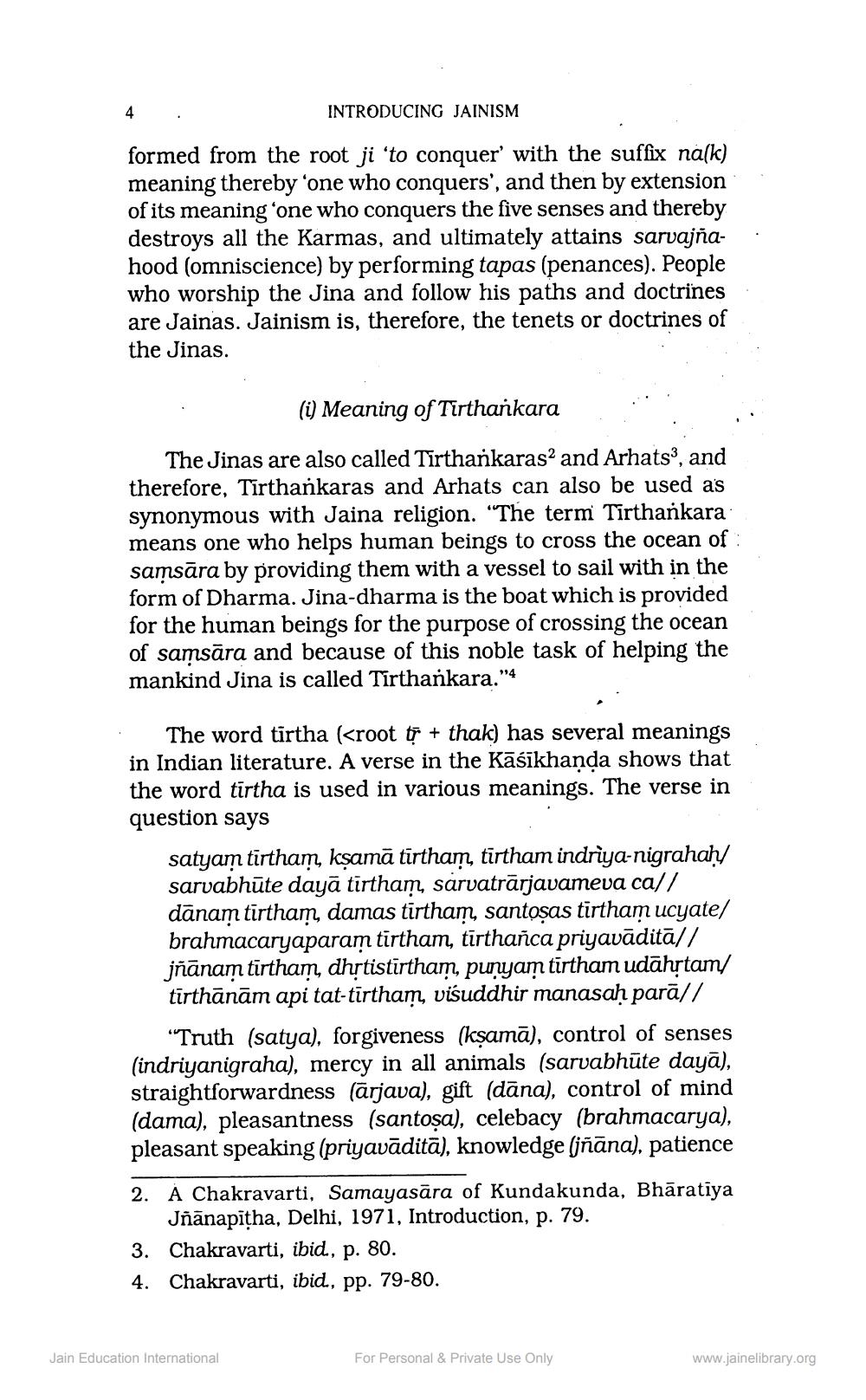________________
4
.
INTRODUCING JAINISM
formed from the root ji 'to conquer' with the suffix nalk) meaning thereby ‘one who conquers', and then by extension of its meaning‘one who conquers the five senses and thereby destroys all the Karmas, and ultimately attains sarvajňahood (omniscience) by performing tapas (penances). People who worship the Jina and follow his paths and doctrines are Jainas. Jainism is, therefore, the tenets or doctrines of the Jinas.
(i) Meaning of Tirthankara
The Jinas are also called Tirthankaras? and Arhats?, and therefore, Tirthankaras and Arhats can also be used as synonymous with Jaina religion. "The termi Tirthankara means one who helps human beings to cross the ocean of: samsāra by providing them with a vessel to sail with in the form of Dharma. Jina-dharma is the boat which is provided for the human beings for the purpose of crossing the ocean of samsāra and because of this noble task of helping the mankind Jina is called Tirthankara."
The word tirtha (<root tr + thak) has several meanings in Indian literature. A verse in the Kāśikhanda shows that the word tirtha is used in various meanings. The verse in question says
satyam tirtham, kşamā tīrtham, tīrtham indriya-nigrahah/ sarvabhūte dayā tirtham, sarvatrārjavameva ca// dānam tirtham, damas tīrtham, santosas tīrtham ucyate/ brahmacaryaparam tirtham, tīrthañca priyavāditā// jñānam tīrtham, dhrtistīrtham, punyam tīrtham udāhrtam/ tīrthānām api tat-tīrtham, višuddhir manasaḥ parā//
"Truth (satya), forgiveness (kşamā), control of senses (indriyanigraha), mercy in all animals (sarvabhūte dayā), straightforwardness (ārjava), gift (dāna), control of mind (dama), pleasantness (santosa), celebacy (brahmacarya), pleasant speaking (priyavāditā), knowledge (jñāna), patience 2. A Chakravarti, Samayasāra of Kundakunda, Bhāratiya
Uñānapītha, Delhi, 1971, Introduction, p. 79. 3. Chakravarti, ibid., p. 80. 4. Chakravarti, ibid., pp. 79-80.
Jain Education International
For Personal & Private Use Only
www.jainelibrary.org




